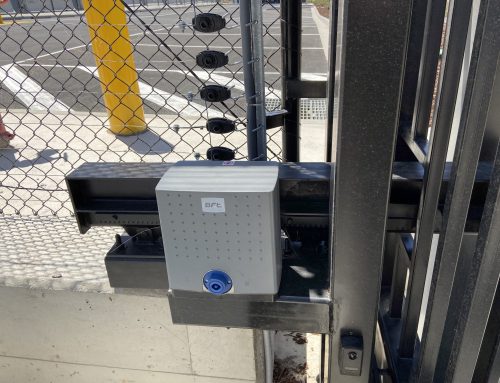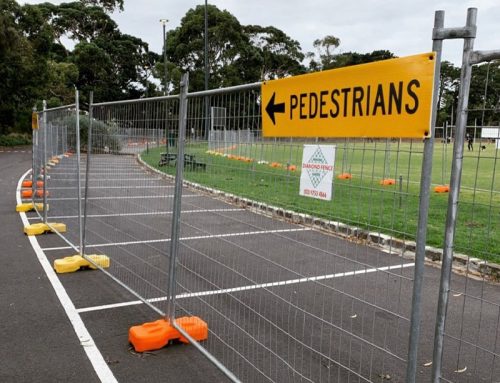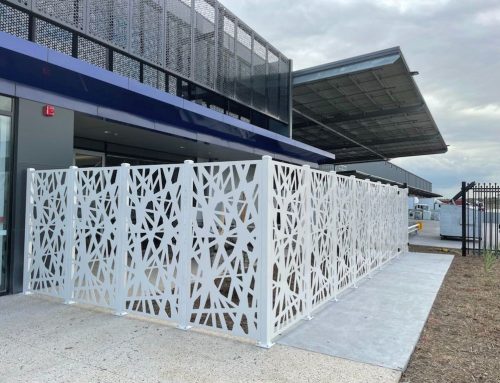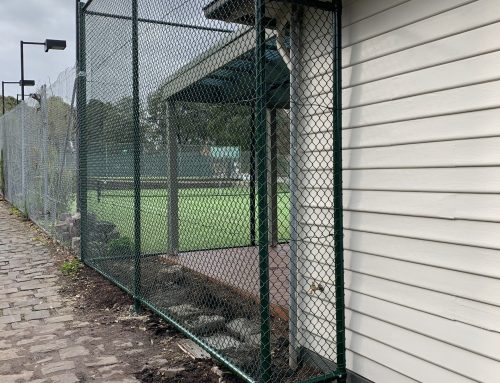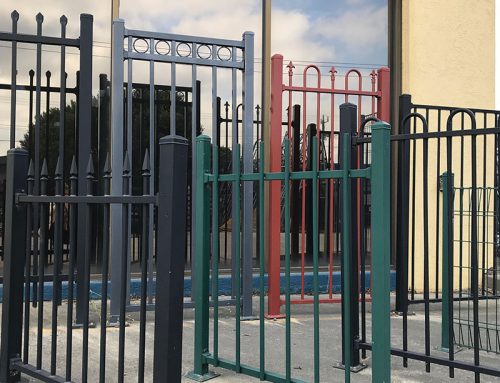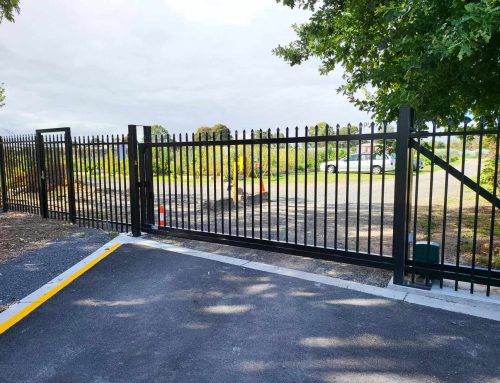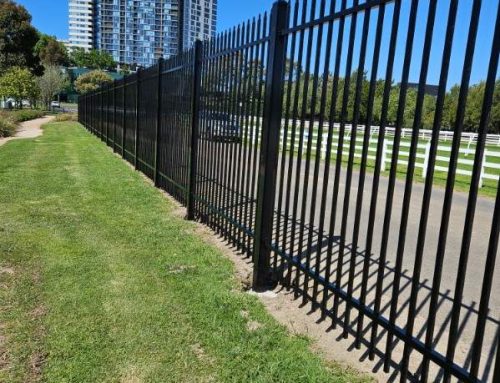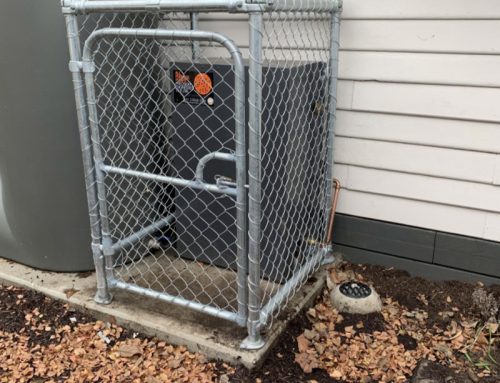Sports Fencing In Trouble? Time To Get Rid Of The Rust!
Shortcuts are good to save time, but sometimes it’s better to take your time and go the distance to have the best possible result that will last much longer. What do we mean? We mean the shortcuts you are tempted to take when installing your sports fence posts. It may be that you have a large amount of sports fencing posts to be installed, and you might really want the job to get done as fast as possible. But be aware, the installation process shouldn’t be the place to take shortcuts. You need a well-designed, correctly installed fence to have the best practicing or competition sports ground, and a long-lasting sports fencing. You wouldn’t want to waste time and money on later repairs to your sports fencing posts because you rushed and didn’t take time to install them properly. Bad quality work will result is rusty sports fencing posts that will need fixing up sooner than later.
Let’s say your sports fencing posts are made out of steel, and for better protection, you have used galvanized posts as the zinc coating applied during the galvanizing process adds protection against corrosion. We also know, that the thicker the zinc coating, the longer it will protect steel from corrosion. Galvanized steel is one of the most successful building products out there and with a lifespan that can reach as much as 50, even to more than 100 years.
How come then that galvanized steel can show signs of rusting? If we say it can last 50-100 and even more years, but still can be affected by corrosion? Yes, that’s the case, unfortunately. You see, when that protective zinc coating gets scratched, the base metal will be exposed to corrosion. Scratching posts, especially when it comes to sports grounds, is highly possible, be it a ball or people jumping over the fence and scratching posts with their sports boots. An easy example is soccer boots that have studs and can scratch the posts.
Galvanized steel resistance depends on the type of galvanizing (there are a few of them) and the thickness of the zinc coating. Different factors can affect that resistance over time. Some of them are below:
1. Humidity (above 60%)
2. Salt in the water or air (corrosion risk is higher near the ocean, sea)
3. Wet environments
4. Acids
5. Plasters and cement containing chlorides and sulfates.
There is a way to protect that protective zinc coating, and that is to paint galvanized steel. It actually alleviates the corrosion of the protective zinc layer. One possibility is to use powder coating that has an attribute to protect from corrosion.
Now we’ve established that whenever possible, use galvanized steel. Also, painting galvanized steel will add a protective layer against the corrosion. Yet, even though galvanized steel is one of the best building materials out there, it can still be affected by corrosion.
What to do if you walk around your sports ground, and you suddenly discover that your steel posts are rusting at the bottom of posts? Do you just wave your hand and say ‘oh well, that’s not a big deal’, or you start panicking? Neither of these options is good. Just stay calm, and keep on reading as there is a solution that doesn’t include ignoring the problem or over-signifying it. But once you discover rust, please bear in mind, this is not something you want to ignore because rust can spread and weaken your sports fencing in the long run.
When finding the signs of corrosion on your posts, you will have to take remedial action. You can significantly increase the lifespan of posts by properly preparing the affected posts, and then painting it with industry approved coating system.
How can you do that?
Firstly you need to get rid of the rust. There are several ways. You can do it with the ingredients you can find at home or with substances bought from the store.
Ingredients found at home:
1. White vinegar. The vinegar will dissolve the rust off the metal. Soak the metal in white vinegar for few hours, and then scrub the rusty paste off.
2. Lime and salt. After sprinkling the rusted area with salt, coat it thoroughly with the lime juice and let it soak for 2-3 hours before scrubbing it off.
3. Baking soda paste. You can make this thick baking soda paste by mixing soda and adding just enough water to have a thickness that allows you to spread that paste on the metal, and then let it sit a while before you scrub it off.
4. Potato and dish soap. If the area affected by rust is a small one, you can use potato and dish soap to remove the rust. Just cut the potato in half, cover the cut end in soap and then place it on the metal for few hours before removing it and scrubbing the rust off.
Materials bought from the store:
1. Chemical remover. There are different types of chemical out there. So before using any, read the instructions as those chemicals can be harmful to skin, and you want to be extra careful.
2. Convert the rust. You can purchase a rust converter from the store. This is a chemical that will stop rust from eating away the metal. It also acts as a primer.
3. Abrasive tools to scrape the rust off. You can use different tools to simply scrub the rust off, but bear in mind that it might be a physically demanding job.
4. Citric acid. Mix citric acid with hot water in a plastic container and then cover the rusty item, and leave it overnight. Then rinse and let it dry off.
You can try any of the methods above and see which one works the best for you as the affected area might vary how seriously rust has affected it.
Once you’ve gotten rid of the rust, follow as below:
1. sand the affected spots
2. was the surface with the degreasing cleaner
3. use paint thinner to wipe off the surface of the steel
4. apply a rust-inhibiting primer and let it dry
5. paint the steel posts with at least 2 coatings of paint (as they are outdoors and will require thicker coating)
And this is how you can fix your rust sports fencing posts. Seems like a hustle? Well, it might be, but better be safe than sorry as remember, rust does spread!
Call us on (03) 9753 4566, shoot us an email on info@diamondfence.com.au, or just get a FREE online quote.

